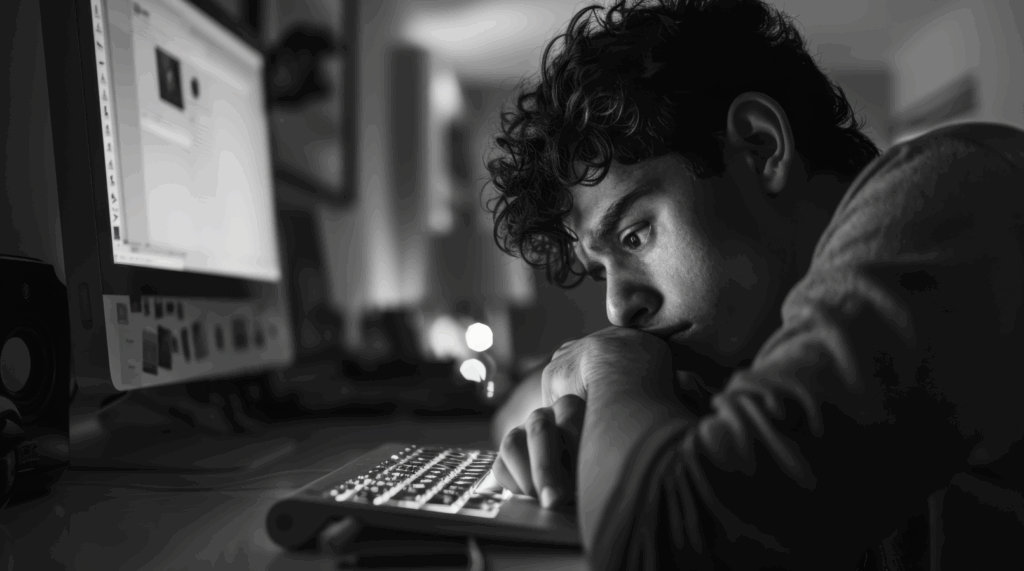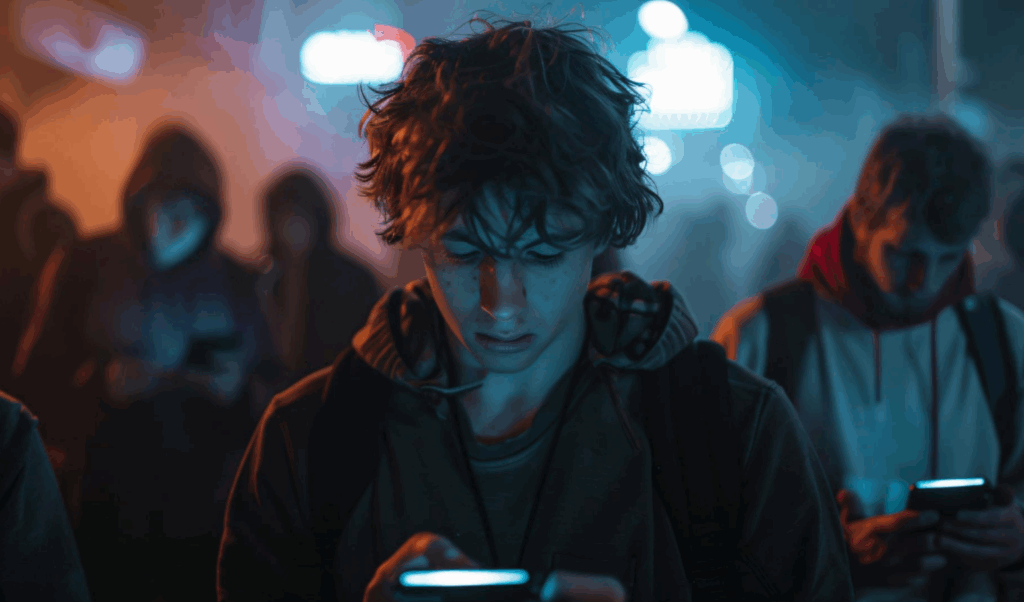Look, I’ll be honest with you – I wasn’t planning on becoming one of those guys who preaches about digital detoxes. But after scrolling through my phone at 2 AM for the third night in a row, watching endless TikTok videos about nothing, I had to face the facts: I had a problem.
It started innocently enough. A quick check of Instagram during my morning coffee turned into a 45-minute rabbit hole of “motivational” posts and comparison with guys who seemed to have their lives figured out. Before I knew it, I was checking notifications every few minutes, feeling anxious when my phone wasn’t within arm’s reach, and falling asleep to the blue glow of my screen.
Sound familiar? Yeah, I thought so.
The Breaking Point
The wake-up call came during a conversation with my buddy Mike. I realized I’d been half-listening to him talk about his new job while simultaneously scrolling through Twitter. When he asked what I thought about what he’d just said, I had no clue. That’s when it hit me – I was physically present but mentally somewhere else entirely.
Recent research shows our attention span has dropped from 2.5 minutes to just 47 seconds, and I was living proof of that statistic. Something had to change.
Going Cold Turkey: Week One
I decided to delete all social media apps from my phone for exactly seven days. No Instagram, no Twitter, no TikTok, no Facebook. Just me, my thoughts, and whatever the hell I was going to do with all that extra time.
Day 1-2: The Phantom Buzz The first couple of days were rough. I kept reaching for my phone out of pure habit, muscle memory making me tap where the Instagram icon used to be. My thumb would automatically swipe to check notifications that weren’t there. It was like losing a limb, honestly. The FOMO was real – what if someone posted something important? What if I missed out on breaking news or the latest meme?
Day 3-4: The Fog Lifts By Wednesday, something interesting started happening. I noticed I was actually finishing conversations without the urge to document them. I ate meals without photographing them first. I caught myself looking up from my phone and actually seeing the world around me – the trees, the sky, people’s faces.
Day 5-7: The Unexpected Benefits This is where things got really interesting. Studies show that a social media detox can improve sleep, satisfaction with life, stress levels, and even strengthen supportive relationships, and I was starting to experience exactly that.
What I Actually Discovered
1. My Sleep Game Changed Completely
Without the urge to scroll before bed, I was falling asleep faster and waking up more refreshed. Research indicates that 70% of social media users scroll before bed, and breaking that habit made a massive difference. Instead of blue light keeping my brain wired, I was reading actual books again – remember those?
2. Real Conversations Made a Comeback
Without the constant distraction of notifications, I found myself having deeper, more meaningful conversations. I was present with my girlfriend, engaged with my coworkers, and actually listening when friends talked. It sounds basic, but it was revolutionary for me.
3. My Productivity Skyrocketed
All those 5-10 minute social media breaks throughout the day? They add up. Without them, I was getting through my work faster and with better focus. I tackled projects I’d been putting off for months and felt genuinely accomplished at the end of each day.
4. The Comparison Game Stopped
Here’s the big one – without constantly seeing curated highlight reels of other people’s lives, I stopped comparing myself to everyone else. No more wondering why my life wasn’t as exciting as that guy from high school’s European vacation or feeling inadequate because I wasn’t hitting the gym like fitness influencers.
5. I Rediscovered Boredom (And It Was Great)
When was the last time you were genuinely bored? I mean really bored, with nothing to distract you? It turns out boredom is where creativity lives. I started thinking more deeply, coming up with ideas, and planning things I actually wanted to do instead of mindlessly consuming content.
The Science Behind the Relief
Research participants reported positive effects from being off social media with improved mood and less anxiety overall, and my experience aligned perfectly with these findings. A randomized controlled trial found that taking just a one-week break from social media improves well-being while reducing depression and anxiety.
It makes sense when you think about it. Social media is designed to capture and hold our attention. Every scroll, every like, every notification triggers a small dopamine hit that keeps us coming back for more. Breaking that cycle gives our brains a chance to reset and find satisfaction in real-world experiences.
The Challenges Were Real
Don’t get me wrong – it wasn’t all sunshine and productivity gains. There were definitely downsides:
- FOMO is a real thing: I worried I was missing important news or social events
- Habit breaking is hard: The muscle memory of reaching for my phone took days to fade
- Social pressure exists: Some friends didn’t understand why I wasn’t responding to memes or tagging them back
But here’s the thing – most of what I thought I was “missing” turned out to be noise. The important stuff? People still called or texted directly.
Coming Back: A Different Approach
After the week was up, I didn’t immediately download all the apps again. Instead, I took a more intentional approach:
- I set specific times for social media use (30 minutes max per day)
- I curated my feeds to include only content that actually added value to my life
- I turned off all non-essential notifications
- I kept my phone out of the bedroom
The Bottom Line
That week off social media wasn’t just a break from apps – it was a reminder of what life feels like when you’re fully present in it. Even limiting use to 15-30 minutes per day leads to meaningful benefits in mental health, and I can vouch for that personally.
I’m not saying everyone needs to go cold turkey or that social media is inherently evil. These platforms can be valuable tools for connection, learning, and entertainment when used mindfully. The key word there is “mindfully.”
If you’re feeling overwhelmed by your social media use, constantly distracted, or finding it hard to be present in your own life, maybe it’s time for your own experiment. Start small – maybe just one day, or even a few hours. Pay attention to how you feel without the constant stream of content and notifications.
You might be surprised by what you discover when you give your mind some space to breathe.

Disclaimer: This article shares personal experiences and observations about social media use and is not intended as professional advice. The lifestyle choices and strategies discussed here reflect individual experiences and should not be considered as recommendations for addressing any specific health, mental health, or behavioral concerns. If you’re experiencing significant anxiety, depression, or other mental health challenges related to technology use, please consult with qualified healthcare professionals. The research cited is for informational purposes only and does not constitute medical or therapeutic guidance.
Sources:
- PMC Articles on Social Media Detox Effects (2024)
- Behavioral Sciences Research on Digital Detox Outcomes
- Harvard Summer School Digital Wellness Resources
- Psychology Today Mental Health Research



